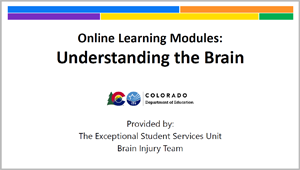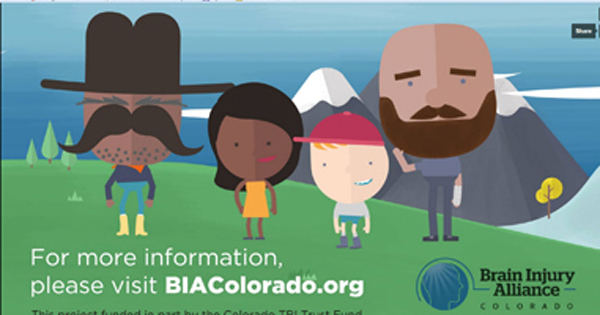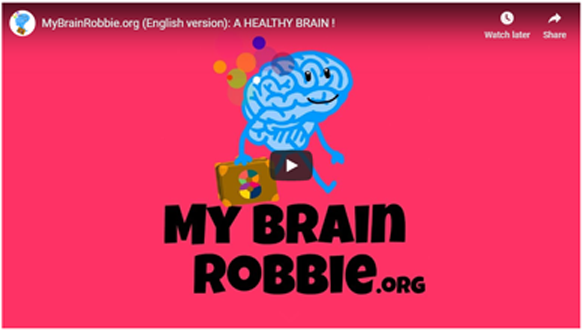You are here
Learning Opportunities (TBI)
Professional Development
Currently no professional development opportunities are available.
Online Learning
Understanding the Brain Learning Series
The Building Blocks of Brain Development & Neuroeducational Evaluation
This module provides information on brain development and a simple framework for understanding and addressing the needs of students with all types of learning differences.
[Time: 48 minutes]
Understanding the Intersection between Brain Injury and Mental Health Conditions
A child who sustains a brain injury is vulnerable to developmental, psychosocial and biochemical consequences. Increase your understanding of and how best to address the needs of these students.
[Time: 33 minutes]
Understanding Brain Injury and the Intersection with Challenging Behaviors: "Can't versus Won't"
A brain-based approach to identifying the root cause of behavior and effectively addressing a students’ challenging behaviors.
[Time: 27 minutes]
Brain Injury 101: Laying the Framework
This module provides information on what a brain injury is, the different types of brain injury, and how school teams can identify the areas of impact of brain injuries.
[Time: 55 minutes]
Brain-Based Classroom & Executive Function Strategies
This module provides strategies for educators that are designed to address the learning and behavioral needs of students. These strategies are also designed to be easily accessed and implemented.
[Time 1 hour 3 minutes]
Understanding Fetal Alcohol Spectrum Disorder/Prenatal Substance Exposure and the Special Education Considerations
Participants will learn about the brain and what types of disruptions in brain development may occur with prenatal substance exposure. Participants will learn a brain-based approach to understanding learning and behavior and special education considerations. This module covers the special education category of Other Health Impairment (OHI) when a student has a health condition that impacts their thinking.
[Time: 59 minutes]
- Handout - Overlapping Behavioral Characteristics & Related Mental Health Diagnoses in Children (PDF)
Register & Watch:
To view any of the Understanding the Brain Learning Series modules participants must complete the series registration. Upon completion of the registration an email will be sent with a link to view the module(s) selected.
Understanding the Brain Series Registration
Evaluation & Certificate:
After viewing each module participants will be able to receive CDE credit once they complete the module evaluation & knowledge check. A link to the evaluation and knowledge check will be provided in the registration email. A passing score required to receive a certificate.
Other Online Learning
Assessment in the School-Age TBI: Focus on Executive Functions for BrainStTEPS- Part 1
Speaking: Brenda Egan Johnson, Dr. Stephen Hooper
Originally Aired: August 28, 2014
View Assessment in School-Age (PaTTAN website)
Videos
Learn more about brain injury and building a healthy brain.
What is Brain Injury?
(3 minutes - this video will open in a another window)
Youth Considerations at Home and in School
(4 minutes - this video will play on this screen, hit play)
Children can learn about building a healthy brain
(6 minutes - this video will open in another window)
Videos from the Center on Developing Child
Center on the Developing Child website
Executive Function: Skills for Life and Learning
(6 minutes)
Being able to focus, hold, and work with information in mind, filter distractions, and switch gears is like having an air traffic control system at a busy airport to manage the arrivals and departures of dozens of planes on multiple runways. In the brain, this air traffic control mechanism is called executive functioning, a group of skills that helps us to focus on multiple streams of information at the same time, and revise plans as necessary.
This edition of the InBrief series explains how these lifelong skills develop, what can disrupt their development, and how supporting them pays off in school and life. This 5-minute video provides an overview of Building the Brain’s “Air Traffic Control” System: How Early Experiences Shape the Development of Executive Function, the joint working paper from the National Scientific Council on the Developing Child and the National Forum on Early Childhood Policy and Programs.
Access more resources for this video on Executive Function from the Center on the Developing Child
How-to: 5 Steps for Brain-Building Serve and Return
(6 minutes)
Did you know that you can help build a child’s brain – starting even before babies can talk? Simple serve and return interactions between adults and young children help make strong connections in developing brains. And, it’s easy and fun to do! This how-to video breaks down serve and return into 5 simple steps (from Filming Interactions to Nurture Development) and features adults and young children doing each step together.
Access more resource for this video on How-To at the Center on the Developing Child.
How Early Childhood Experiences Affect Lifelong Health and Learning
(5 minutes)
How is ongoing, severe stress and adversity in early childhood connected to chronic disease in adults? And, what can we do about it? In this animated video, narrated by Center on the Developing Child Director Jack P. Shonkoff, M.D., learn what the latest science tells us about how early experiences affect not only early learning and school readiness, but also lifelong health. Understand the effects of adversities such as poverty, discrimination, systemic racism, exposure to violence, and child maltreatment, abuse, and neglect on the developing brain and many other systems in the body. Challenge yourself to think about how we can use policies and resources to address the sources of these problems. And, consider how integrating pediatric primary care with every aspect of the early childhood ecosystem may be an important part of the solution.
For more information, please contact:
Jody Dickerson, RN, BSN, MN
Brain Injury Specialist
Phone: (720) 795-2273
Email Jody Dickerson
Having trouble with this webpage?
If you have problems with broken links or accessing the content on this page, please contact the Exceptional Student Services Unit at ESSU@cde.state.co.us. Please copy the URL link for this page into the email when referencing the problem you are experiencing.






Connect With Us




